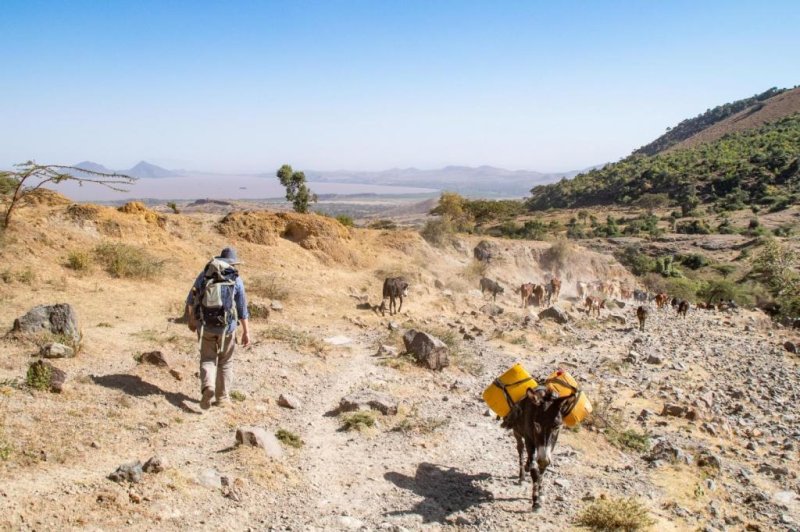Researchers collect ancient volcanic rocks on the slops of Aluto, a stratovolcano in East Africa. Photo by
Ben Clarke/University of Edinburgh
May 23 (UPI) -- Rocks recovered from a remote mountainside in East Africa have offered scientists fresh insights into an unusual type of volcano -- a type of volcanism more hazardous than previously thought.
Aluto, a dormant stratovolcano in Ethiopia's Rift Valley, last erupted 2,000 years ago. Previous surveys suggested the eruption was rather minor, threatening only those in the volcano's immediate vicinity. But the type of volcanic activity that produced the ancient eruption, known as a pumice cone eruption, isn't well understood.
To more accurately characterize the nature of Aluto's last eruption, which took place in 50 B.C., scientists used an array of analysis techniques to study several rock samples.
The unique rocks featured a foamlike interior surrounded by a thin layer of volcanic glass, suggesting the volcanic remnants were hot and sticky when they were deposited by the ancient eruption.
Globally, pumice cone volcanoes are rare, but they're common in East Africa, Iceland and New Zealand.
Because the rocks were found far from Aluto's cone, scientists concluded the ancient eruption must have been more powerful than researchers previously estimated. Authors of the new study -- published this month in the journal Nature Communications -- suggest the rocks were carried from the caldera by a powerful and fast-moving avalanche of super-heated rock, ash and gas.
The findings could help geologists more accurately estimate the risks pumice cone volcano eruptions.
"Many people live on and around these volcanoes, which also host valuable geothermal power infrastructure," Ben Clarke, a doctoral student at the University of Edinburgh, said in a news release.
"Our work suggests that future eruptions at these volcanoes have the potential to cause significant harm, further from the volcano than we previously thought. Continued interdisciplinary research to understand and manage this risk is required to safeguard people and infrastructure in Ethiopia."















